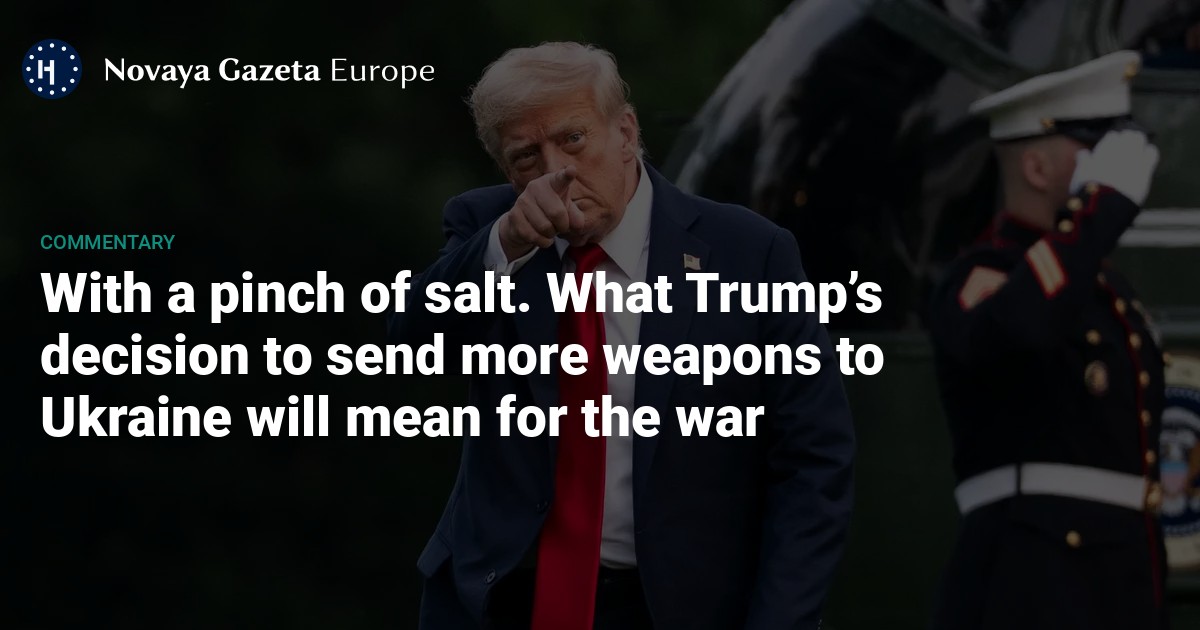



At face value, Donald Trump’s announcement about his plans on Russia and Ukraine look like a major policy change. Speaking from the Oval Office on 14 July, where he had been meeting with NATO secretary general Mark Rutte, the US president said he would send “top-of-the-line-weapons” to help Kyiv and — unless a ceasefire deal is agreed inside a 50-day time limit — the US would impose secondary sanctions on any countries dealing with Russia.

David Hastings Dunn
Professor of International Politics, University of Birmingham
But while this represents a significant departure from Trump’s previous approach, it’s more of a step back towards the policy approach of his predecessor Joe Biden than the U-turn that some commentators are claiming.
For months Russia has stepped up its bombardment of Ukraine, buoyed by the fact that neither the US Congress nor the White House has authorised any new military aid to Kyiv. Moscow would have been aware of this lack of US action and its missile and drone attacks against Ukraine have aimed to run down the stocks of air defence missiles supplied by Biden while paying lip service to the idea of peace negotiations.
For Trump the penny appears finally to have dropped as to what was happening. His frustration and disappointment in Putin is what has finally led to him calling this out. According to Trump, Putin “fooled a lot of people — Clinton, Bush, Obama, Biden — he didn’t fool me. At a certain point talk doesn’t talk, it’s got to be action.”
The decision to send new supplies of defensive — and potentially even longer-range offensive missiles — to Ukraine, even if the Europeans pay for them, is an important signal to Russia. But so too is the threat of tariffs of 100% on countries such as India and China that sustain the Russian economy by buying its oil and gas at knockdown prices.
What has not changed, however, is the goal of Trump’s policy towards the war in Ukraine.
The US senate, led by Lindsay Graham, the influential Republican senator for South Carolina, has been itching to pass these secondary sanctions for months. Now that the Trump administration appears to have adopted this plan it is a significant policy instrument to pile the pressure on Russia.
The change in Trump’s approach may also mean that the €6.9 billion of frozen Russian assets in the US, and €192 billion in Europe, could be released to aid Ukraine, which would provide a ready means to pay for the US arms transfers.
What has not changed, however, is the goal of Trump’s policy towards the war in Ukraine. While the Biden administration called out the illegality of Putin’s unprovoked aggression and called for the restoration of Ukrainian sovereignty, Trump is merely calling for a ceasefire.
Trump may say he is “disappointed” with Putin, but he has not labelled him as the aggressor. In fact at one point he was blaming Ukraine for the invasion. And, significantly, he has not demanded that Russia give up the 20% of Ukraine that it currently illegally occupies.
The US president is also silent on what the US would commit to in terms of security and stability for Ukraine after the fighting stops. This is a much bigger question than Ukraine’s NATO membership. America’s European allies in NATO regard some sort of stability force on Ukrainian territory as necessary to deter any future Russian aggression.
Whether or not US troops would be involved, and all the signs are that they would not, some sort of US security back-stop or guarantee is still seen in Europe as key to its success, as would be US logistical and intelligence support for its operation.
Another aspect of the change in Trump’s policy is the long lead time that Russia has been given to come to the table. A lot of Ukrainian civilians are likely to die during this period if the intense bombardment continues. On the battlefield, 50 days would give the Russians an extended window during a renewed summer offensive to make further territorial gains inside the occupied provinces.
So Trump’s proposals have to be viewed through the prism of his propensity to set deadlines that are then pushed back multiple times, as with the on-again, off-again tariffs, which have given Trump the nickname Taco — “Trump always chickens out” — on Wall Street.
Trump is seen by many as both inconsistent in his threats and unpredictable as to where policy will eventually settle.
Russian senator, Konstantin Kosachev, was certainly taking this view when he told the BBC after Trump’s announcement that, “if this is all Trump had to say about Ukraine today, then so far it’s been much ado about nothing”.
This sentiment was shared by the Russian stock market which rose 2.7% in the aftermath of Trump’s announcement. Analysts had expected much worse, so the long delay in the prospect of anything actually happening was clearly seen as a long way off and potentially subject to change or cancellation. Trump is seen by many as both inconsistent in his threats and unpredictable as to where policy will eventually settle.
The fact that Trump told BBC Washington correspondent Gary O’Donoghue that while he was “disappointed” with Putin, he was “not done with him”, and his clear reluctance to act quickly and decisively in sanctioning Russia, should be seen as an important counterpart to the apparent policy shift.
Like so many things with the 47th US president, it’s important not to react to the media appearances or the headlines they provoke, without also paying attention to the policy actions of his administration.
This article was first published by The Conversation. Views expressed in opinion pieces do not necessarily reflect the position of Novaya Gazeta Europe.
The Russian government has banned independent media. We were forced to leave our country in order to keep doing our job, telling our readers about what is going on Russia, Ukraine and Europe.
We will continue fighting against warfare and dictatorship. We believe that freedom of speech is the most efficient antidote against tyranny. Support us financially to help us fight for peace and freedom.
By clicking the Support button, you agree to the processing of your personal data.
To cancel a regular donation, please write to [email protected]
VPNovaya
Help Russians and Belarusians Access the Truth
